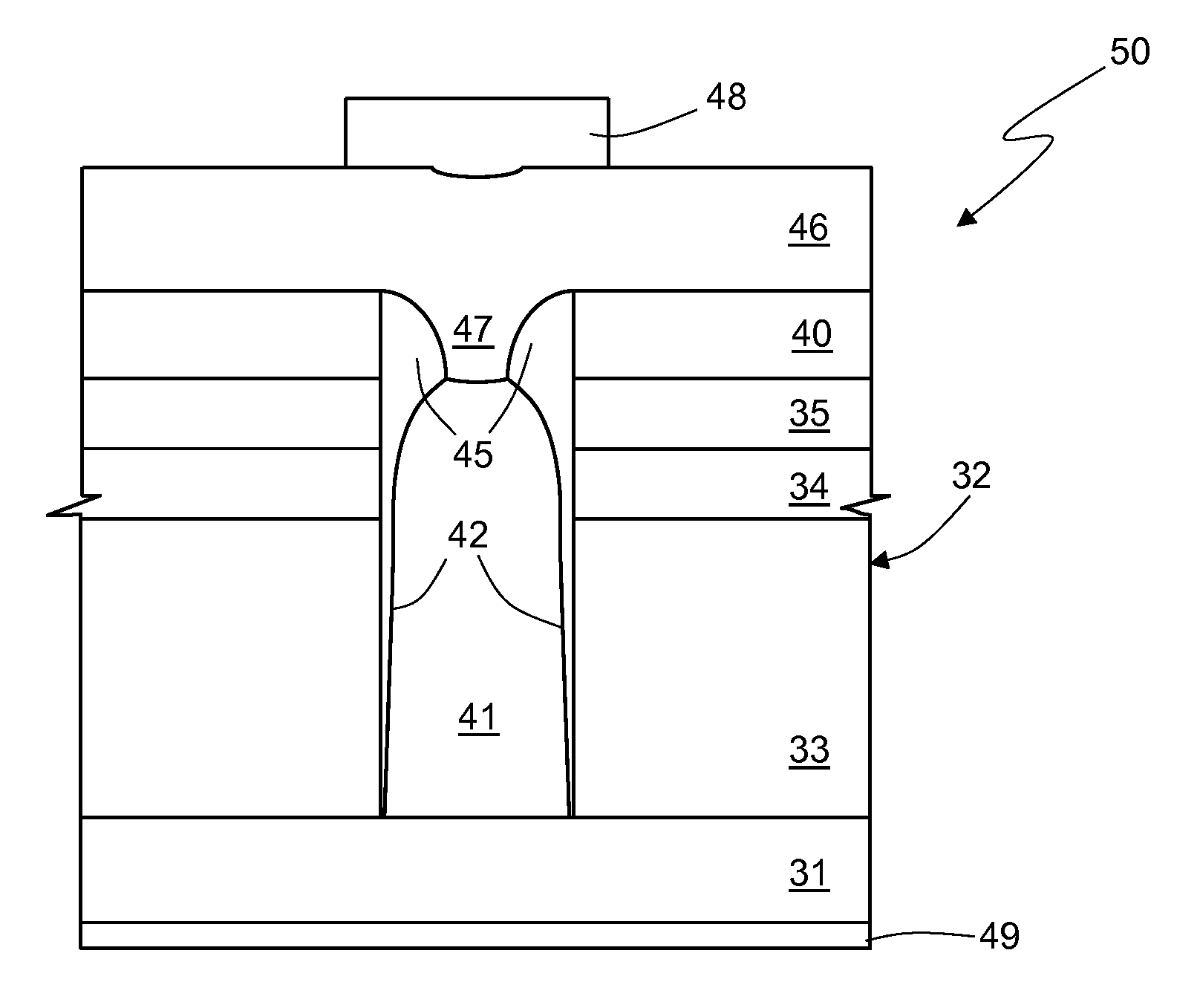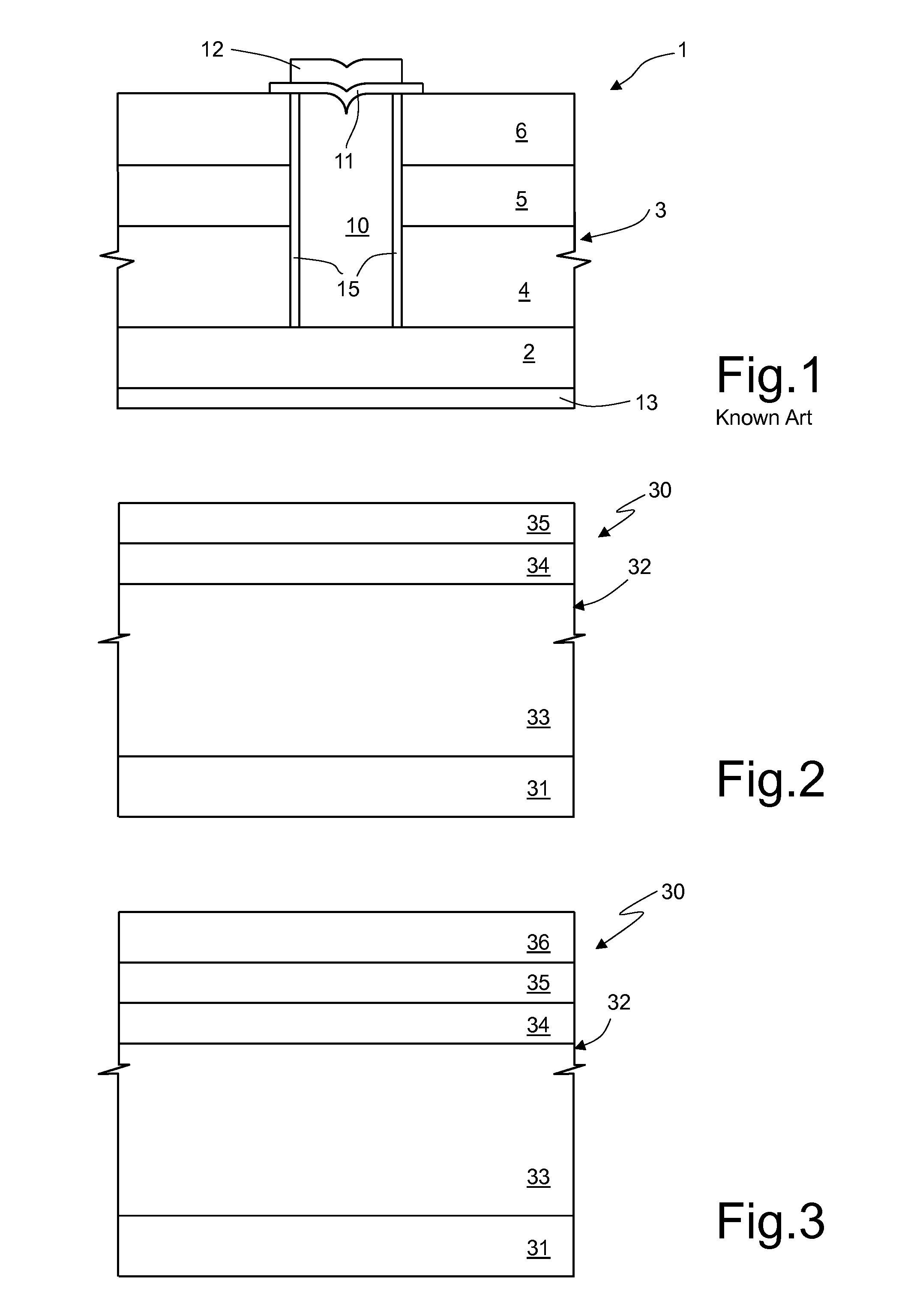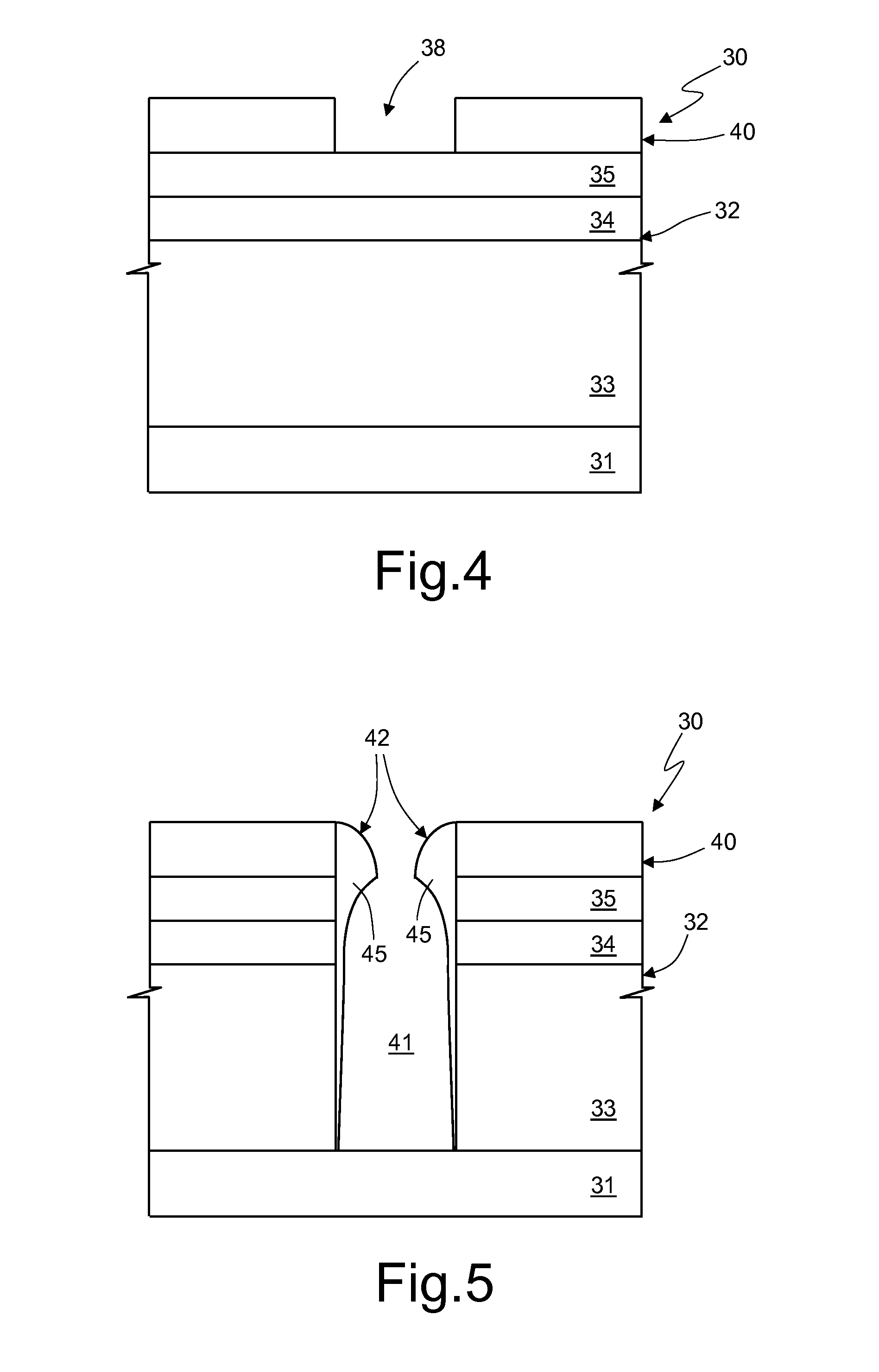Process for manufacturing a semiconductor device comprising an empty trench structure and semiconductor device manufactured thereby
a manufacturing process and semiconductor technology, applied in the manufacture of electrode systems, electric discharge tubes/lamps, tubes with electrostatic control, etc., can solve the problems of inability to ensure that the metal does not penetrate the trenches in large amounts, the metal layer is difficult to be deposition, and the device is not always properly operated
- Summary
- Abstract
- Description
- Claims
- Application Information
AI Technical Summary
Benefits of technology
Problems solved by technology
Method used
Image
Examples
Embodiment Construction
[0022]An embodiment of the present process for manufacturing the above device is described hereinafter, with reference to FIGS. 2-7.
[0023]In particular, the process described regards manufacture of an empty trench microelectronic semiconductor device, such as a diode, a triode, a tetrode, a pentode or some other device having a similar basic structure.
[0024]Initially (FIG. 2), on a substrate 31, of heavily doped semiconductor material, such as monocrystalline silicon, a stack 32 of layers is formed. The ensemble constituted by the substrate 31 and the stack 32 forms a body 30, for example a wafer.
[0025]The substrate 31 is typically of an N type, for example doped with phosphorus, and has a resistivity of approximately 4 mΩ·cm.
[0026]The stack 32 here comprises a first insulating layer 33, a conductive layer 34, and a second insulating layer 35.
[0027]For example, the first insulating layer 33 is made of tetraethylorthosilicate (TEOS) formed by chemical vapor deposition (CVD) with a th...
PUM
 Login to View More
Login to View More Abstract
Description
Claims
Application Information
 Login to View More
Login to View More - R&D
- Intellectual Property
- Life Sciences
- Materials
- Tech Scout
- Unparalleled Data Quality
- Higher Quality Content
- 60% Fewer Hallucinations
Browse by: Latest US Patents, China's latest patents, Technical Efficacy Thesaurus, Application Domain, Technology Topic, Popular Technical Reports.
© 2025 PatSnap. All rights reserved.Legal|Privacy policy|Modern Slavery Act Transparency Statement|Sitemap|About US| Contact US: help@patsnap.com



